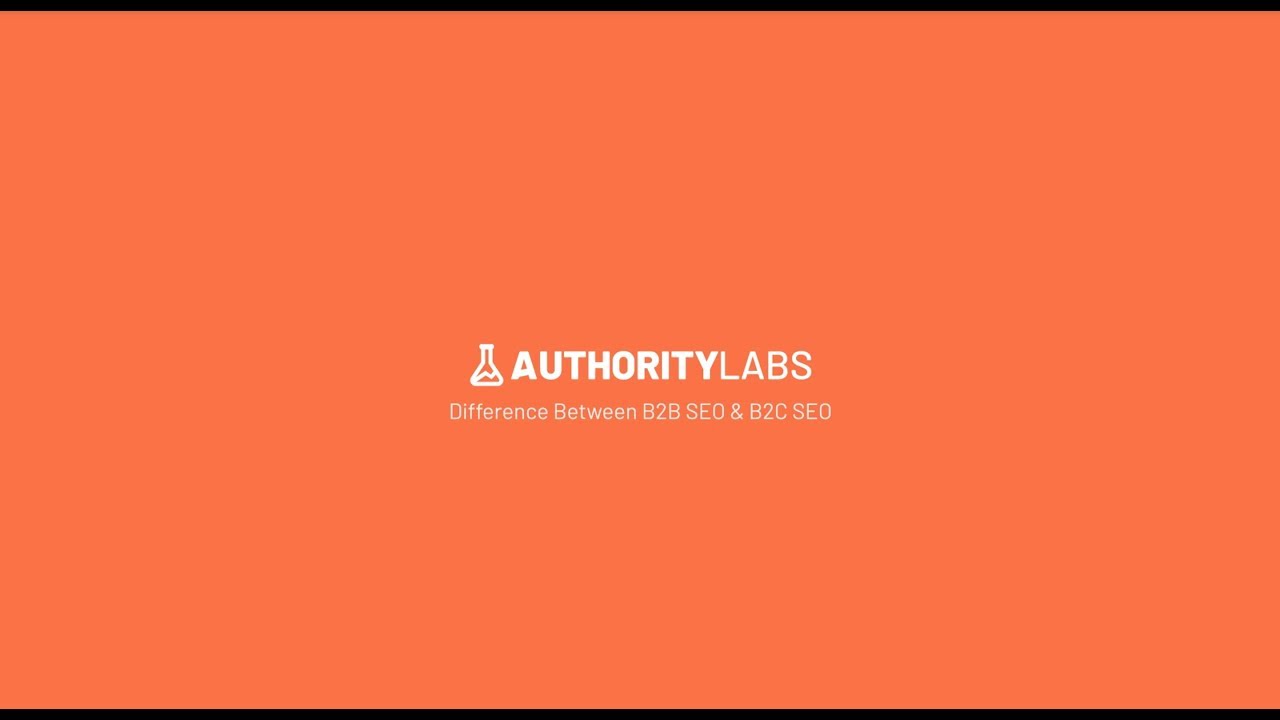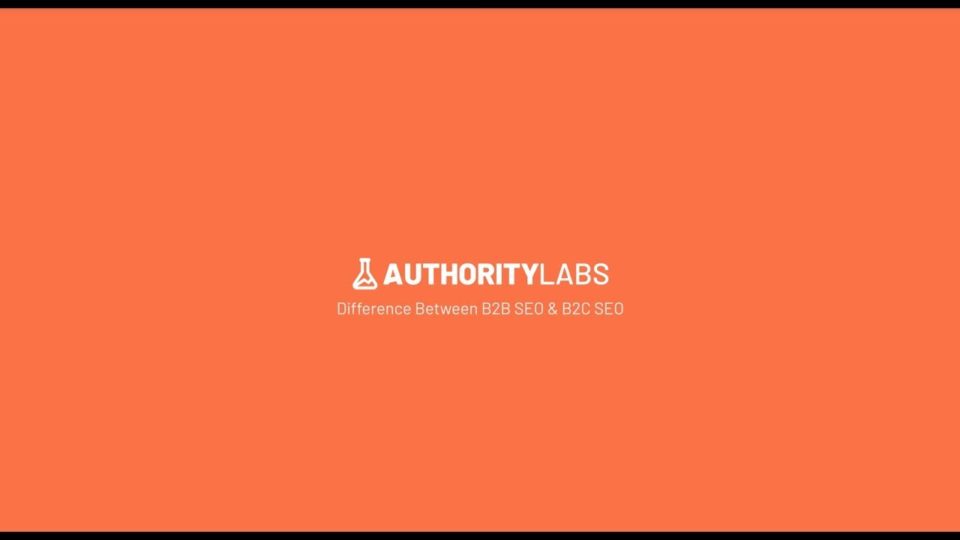Visibility, Marketing Strategy, Qualified Leads, Consumer Reviews, Content Marketing, Keyword Usage, Relationship Building…
That’s a lot of “buzzwords,” all of which are critical components for Business to Business (B2B) SEO and Business to Consumer (B2C) SEO.
Which of these items are most important to you, and how are you prioritizing them when structuring your online presence to best optimize customer growth and business success, all while staying competitive in your industry?
Your first step toward success in your digital marketing campaign is understanding how B2B and B2C SEO differ from each other. While these marketing models do share many similarities and goals, the way they approach and engage their target audience(s) online is a bit different.
Let’s break it down.
What’s the Difference Between B2B SEO and B2C SEO?
The Goals of Each Campaign:
The end goal of a B2B and B2C search campaign are really the same in the end: to generate sales and increase revenue. However, they can measure success quite differently.
B2C SEO is rather straightforward; it’s to drive traffic to their platforms to sell their products and services. Because the nature of the sale is transactional and done amongst oodles of competitors, it’s imperative to make the potential consumers’ visit hassle-free, memorable, and ensure a quality product at a competitive price.
Sales are more important for B2C since this can happen in one transaction. It’s all about short-term value at an efficient rate.
B2B SEO is not to make a “sale” immediately but to drive conversions which will eventually lead to a sale. The relationship between the Business to Business marketer and their prospect is much like dating.
The marketer may have their visitors request a demo, take a free trial (the “getting to know you” phase), or download a whitepaper (for a more in-depth knowledge of compatibility) to distinguish qualified leads. It’s about building personal relationships that evolve into long-term relationships.
A positive experience can mean repeat or referral business down the road, which is crucial to the B2B marketer, and yes to the B2C marketer as well. Due to the higher costs of the products and length of commitment to the service with B2B offerings, this acquisition can take much longer to occur.
The Difference in Content Marketing:
The target audience of the B2C marketer is typically an individual in a vast sea of buyers who are interested in making a purchase either immediately or in the very near future.
Purchases are usually inexpensive, of lower risk, and often driven by emotions. They may be looking for product specs, pricing, promotions, or service information.
Content marketing for B2C is typically used for advertising, building links, and increasing online presence via websites and social media platforms such as Facebook, LinkedIn, and Twitter.
For the B2B sector, prospects are drawn from a much narrower field. Their leads are typically other businesses looking for solutions to pass along to their client base or internal solutions and are considered to be logic-driven.
The B2B marketer is usually faced with a team of buyers, going through a much longer “wooing” process. This will be more intricate, and comes at a much higher cost. The marketing strategy is backed by a more in-depth market analysis of the potential client. Here, it is more about brand awareness, education, and demand generation.
Effective Keyword Usage/Terminology:
For both B2B SEO and B2C SEO, the usage of keywords in any online vehicle is tantamount in recognition by consumers, leads, and search engines to increase online visibility.
No matter who you are or who you are marketing to, understanding your audiences’ needs, intent, business practices, and your industry will guide you in selecting the appropriate words or particular grouping of keywords to target your ideal consumer and lead them to you.
For B2C SEO, consumers have identified a need; they have a clear understanding of what kind of product they are looking to purchase. Keywords must resonate with the consumer, meeting this specific need. They should be simple in nature – not too broad and not too technical.
Identify focus keywords that the consumer will likely use when comparing the best product and the best price. These keywords are typically one to three words when narrowing down a search: “sneakers,” “running sneakers,” “best running sneakers.” There is also less variance in the terms they use.
B2B SEO is a more complex keyword strategy, addressing the needs of very specific types of businesses. Niche clientele!
Because most of these buyers are looking for something specific to solve an issue or fill a gap in their organization, keywords will be both informational and transactional. The terminology is most often more technical and consisting of long-tail keywords to appeal to company decision-makers at various levels. The click-thru process is all about vetting.
Customer Reviews and Testimonials:
When was the last time you purchased a product or a service without first reading some customer reviews? We are willing to bet you haven’t! Consumers place a lot of stock in what other consumers like or don’t like!
Product reviews are key tools for online branding and marketing efforts. They provide transparency, build trust and loyalty, increase credibility, and drive sales.
Peer reviews have a significant impact on audience behavior. For the B2C marketer, “nearly 95% of shoppers read online reviews before making a purchase” and for the B2B marketer, this number is just as high – 92% of B2B buyers are more likely to purchase after reading a trusted review. When looking at numbers like this, why wouldn’t you utilize customer reviews?
Reviews not only help increase a marketer’s online presence, but they also allow pages to be found by the search engines when these reviews happen to utilize your target keywords and appear on multiple pages.
So, how do you get these reviews? On-site requests and follow-up emails are the most popular methods. Keep the request simple to increase your chances of participation. For example: name, email address (ensure this will not be reused), a rating, and 2-3 sentences of feedback.
Other methods commonly used by B2C may be in the form of incentives:
- Contest entries
- Coupons
- Discounts
- Gift Certificates
Don’t be too general in the ask! Rather than, “What did you think of the product?” try, “How did you use the product?” Instead of “Would you recommend this product?” how about, “Who would you recommend this product to?”
Asking the right questions can naturally prompt buyers to expand on their opinions and offer other key information and perhaps even photos or videos.
There is a higher risk in the B2B purchase. These sales are high in value and could have a significant impact on a prospect’s business, so reviews, testimonials, and in some instances case studies, are as important if not more so to the business-to-business marketer.
Collecting consumer reviews for B2B SEO can be a little more difficult to obtain; however, developing a consumer review strategy that will continually seek out new reviews is worth the time, effort, and money.
Ask for reviews through an email request, particularly at the point of conversion, through phone outreach or in-person conversations. Many B2B companies will outsource this aspect of the marketing strategy due to the time it takes to construct and the necessary follow-up for its efficacy.
Discovering what your target audience is searching for is an ongoing process. Consistent practice allows for refinement when creating professional, well-written content to best satisfy their searches.
If you as a marketer believe and trust in your own products/services, and you are using the appropriate best practices discussed, you are in a win-win situation for yourself and your customers!

